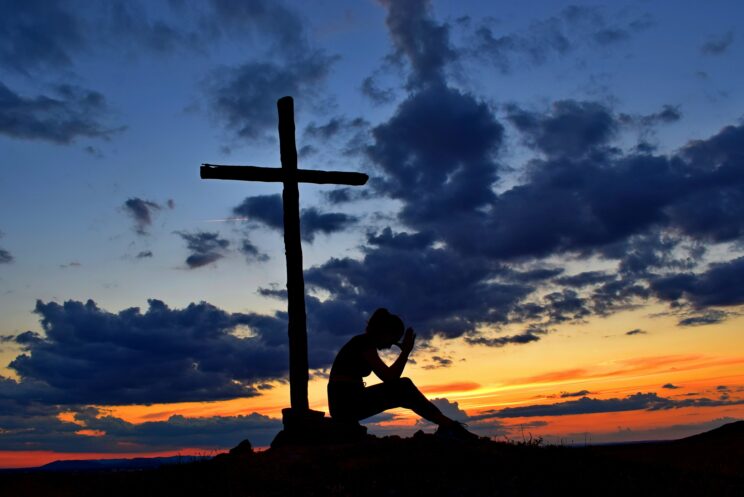The second in a series of weekly Lenten reflections.
Some have called the season of Lent the time of “bright sadness.” This is such an interesting phrase. What is bright about sadness? We tend to think of sadness as gloomy or dark or gray. Brightness doesn’t tend to come into it. And when something is bright, it usually has light around it, it energizes and excites. In sadness we might think of looking down. With brightness we might think of looking up. How can these two things be connected?
And this would be the great paradox of Lent. We live out Lent against the backdrop of our Easter faith. We know that Jesus is the risen and ascended Lord, that he is on his throne and that he has conquered death. This is bright, indeed!
But when we speak of Jesus on his throne, we often speak of the Lamb of God. The wounded, slaughtered, sacrificed lamb of God. Jesus with wounds in his hands and feet. This is true sadness.
There is great and completely wondrous joy here. And there is profound, aching, heart-rending sadness. In Lent, we hold both at the same time.
Why enter the sadness if we know about the brightness?
As I have thought about this, year after year when Lent comes around, my best answer would be we do it to be closer to Jesus. If he took the long road to Jerusalem to face the cross and all that death by crucifixion entailed, do I want him to do that alone? Do I want to stand back at a safe distance to observe? Or am I somehow invited in? Is there an invitation in Lent to walk with Jesus, to weep and to grieve and to feel something of the agony Jesus felt?
There is so much space given to the scripture accounts of Jesus’s death (and resurrection). Clearly the writers of the gospels thought this was very important. Indeed, we know the crucifixion, the death, and the resurrection, are central to everything we believe. So, why not, at least once a year, enter this story in a deeper way. What might we see that we have not seen before? What might we learn? How might this connect me more completely to my savior and my Lord?
So, I choose to step into sadness. To open myself to feeling grief, outrage, frustration, agony, pain, discouragement and even hopelessness. It will be very, very sad. And it will instruct me in the cost of my, of our salvation. I have been bought with a price, as Paul says to the Corinthians. I have been loved in some deep way that is beyond my understanding, but I reach for a greater sense of this gift. Indeed, the love of Jesus, the love of God, is so vast—and my sense of it tends to be so very feeble that I welcome a chance to open my mind and my heart more fully to be able to take it in.
Paul prays fervently that the Ephesians will grasp how wide and long and high and deep is the love of Christ, and that they will know this love that surpasses knowledge in order to be filled with the fullness of God.
The fullness of God? What can that be? I don’t fully know, but if it has to do with a huge kind of love, an all-encompassing love that comes from God, and shows itself in the sacrificial death of Jesus, it must be something good! And if Paul prays for them to have it, it must be, in some sense, attainable. I believe the shalom of God would be a good way to start thinking about this. God wants shalom, that is, he wants complete well-being for his people. This would include justice, physical well-being, truth, knowledge, wisdom, love, beauty, mercy, kindness’. we could go on and on. But this is God’s will for people and the work of Jesus on the cross was to bring the redemption needed in the world to usher in this shalom.
And so, I choose to pursue a deeper understanding of the wide, long, high, and deep love of God even if it takes me to a place of utter sadness as I watch Jesus be wrongly accused and wrongly executed in a horrible death. I hold the brightness of God’s unimaginable love along with the unbearable sadness of the death of Jesus at the same time. This is the bright sadness that is Lent.
Carrie Bare is married to a pastor and mother of two grown sons. Though she is permanently based in Spokane, Washington, she is currently dividing her time between Spokane and Boulder. Carrie has been with InterVarsity Christian Fellowship since 1975, currently serving as a spiritual director, while also serving on the Faculty Ministry Team and as chaplain to the national leadership team for Grad Student and Faculty Ministry in Inter Varsity. She has always loved reading, especially fiction.


Leave a Reply